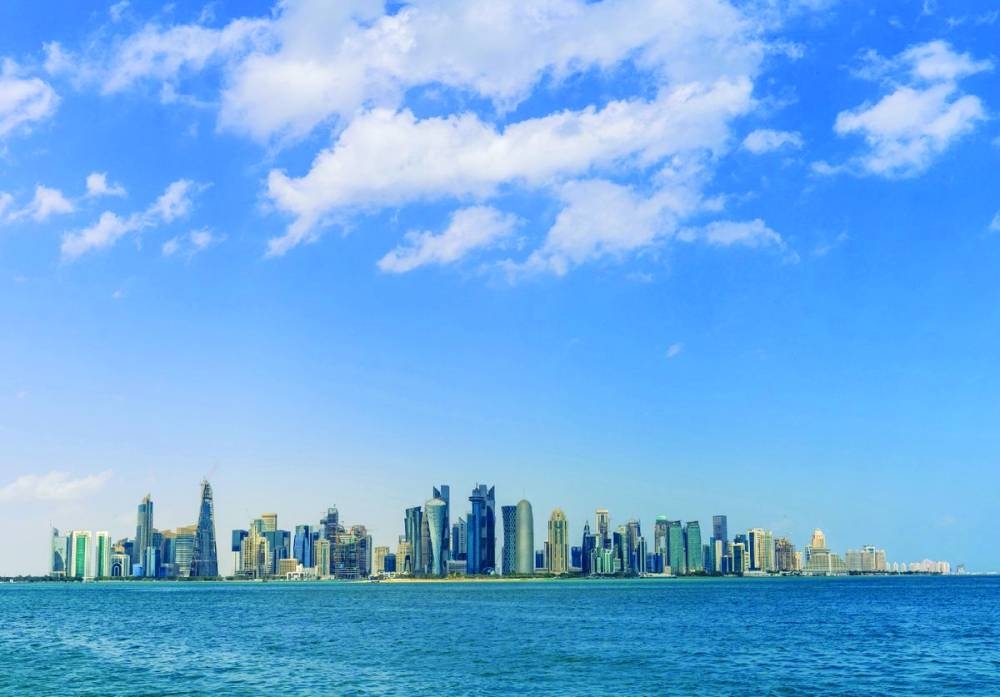Strong business optimism has underpinned Qatar's 2023 growth outlook, Oxford Economics said in its latest country outlook.
Oxford Economics has left its 2023 GDP forecast for Qatar unchanged at 2.7% and sees the economy sustaining this pace in 2024 as the government continues to support growth.
The researcher expects the expansion of gas capacity and the pipeline of planned projects to draw foreign direct investment (FDI), underpinning average growth of 3.2% in the non-oil sector this year and next.
The February PMI showed business activity growing for the first time since September 2022, led by demand in the wholesale and retail sectors.
The monthly rise on January was the second strongest since the PMI data began to be compiled, driven by a rebound in output and new business. Although the employment index changed little during the month, businesses are upbeat about growth prospects, with expectations of activity soaring to a 41-month high.
The February PMI points to a slowing albeit steady growth path in 2023, in line with regional trends.
Although commodity prices have softened amid weaker global growth, they remain elevated, providing support to Qatar's macroeconomic environment. GDP data for Q4, 2022 is yet to be reported, but the researcher expects activity to have been supported by the month-long FIFA World Cup Qatar 2022, which brought an influx of visitors.
“We continue to think GDP expanded by 4.1% last year. GDP data for Q3, 2022 show the economy grew by 4.3% year-on-year (y-o-y), marking a slight decline on a quarterly basis. The expansion was driven by 5.3% y-o-y growth in the non-oil sectors, amid strength in construction, transportation, and wholesale and retail trade. Meanwhile, the oil sector expansion stood at 2.7% y-o-y,” Oxford Economics said. “Firms are optimistic about near-term growth prospects, with the 12-month outlook soaring to a 41-month high. Weaker global growth and softer commodity prices are dampening exports and the budget revenue outlook.”
Oxford Economics’ baseline sees spending growth easing, leading to a budget surplus of 10.3% of GDP this year.
According to Oxford Economics, the government ran a surplus of QR89bn (10.7% of GDP) in 2022, the strongest outcome since 2014. Expectations of sustained fiscal surpluses have triggered a positive credit outlook change from Fitch.
Prices rose by 0.2% month-on-month (m-o-m) in February, raising annual inflation to 4.4%, from 4.2% in January.
The recreation and culture category, 11% of the CPI basket, drove the increase, with the sub-index rising 5.2% m-o-m, offsetting declines in other categories.
“We expect annual inflation rates to be on a downtrend in the coming months and continue to forecast average inflation at 2.3% this year before stabilising around 2% in the medium term,” Oxford Economics noted.
The Qatar Central Bank tracked the US Federal Reserve in hiking 25bps in March. More tightening is likely in the coming months, which will weigh on lending and non-oil growth, before rates are cut in 2024, the researcher noted.
Business
Strong business optimism underpins Qatar's 2023 growth outlook; economy seen sustaining pace in 2024: Oxford Economics

The February PMI showed business activity in Qatar growing for the first time since September 2022, led by demand in the wholesale and retail sectors, according to Oxford Economics.

